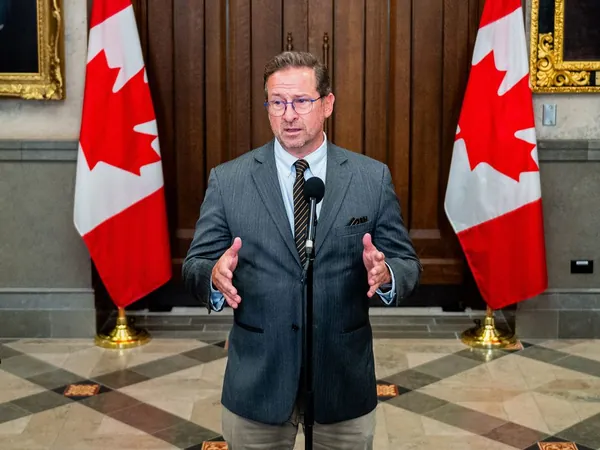
Bloc Québécois Issues Ultimatum to Liberals: Grant OAS Increase or Face Early Election
2024-10-02
OTTAWA — Yves-François Blanchet, the leader of the Bloc Québécois, has placed a short window of opportunity before the Liberal government to comply with the House of Commons' will and authorize a significant increase to the Old Age Security (OAS) payments for all Canadians aged 65 and over. Blanchet has made it clear that if the Liberals fail to act within the next few days, he is prepared to open discussions with other opposition parties to trigger a no-confidence vote, potentially leading to an early federal election as soon as next week.
The Bloc's demand revolves around a bill that would boost OAS payments, which is projected to cost the government over $16 billion within five years. This initiative has received considerable support, passing a motion in the House with the backing of Conservative, NDP, and Green Party members, along with five Liberal MPs from Atlantic Canada. However, the majority of the Liberal cabinet dismissed the motion, which has raised tensions within Parliament.
Government House leader Karina Gould has stated that it would be inappropriate for the House to proceed in such a way regarding financial matters typically reserved for the government. Blanchet vehemently criticized the Liberal government's hesitation, accusing them of refusing to provide a definitive answer regarding the funding request.
Only the government can provide a royal recommendation for public spending, which is essential for any bill that involves financial implications. Blanchet's ultimatum reflects a broader concern among opposition parties regarding the government's response to senior citizens, especially as many feel the current financial assistance is inadequate.
The push for an increase in OAS comes in the wake of rising costs of living, which have placed added pressure on seniors, many of whom struggle with fixed incomes. The Liberals have already increased OAS for seniors aged 75 and older by 10%, citing that this demographic typically faces higher healthcare expenses. However, Blanchet and the Bloc have long emphasized the unfairness of excluding those aged 65 to 74 from similar benefits.
Adding to the drama, Conservative leaders have attempted to challenge the government with two unsuccessful non-confidence motions this session, while NDP leader Jagmeet Singh has adopted a more cautious stance, indicating his party’s decisions would be made on a case-by-case basis.
Blanchet reiterated the Bloc's uncompromising stance, stating, "This is our position, this is our demand, and it will not change. If the government does not provide the royal recommendation, we will engage swiftly with other opposition parties to facilitate an election."
With the current composition of Parliament, if the Bloc, Conservatives, and NDP unite, they hold a combined 177 seats against the Liberal government’s 152 seats, potentially paving the way for significant political changes in Canada. As tensions mount and deadlines loom, all eyes will be on how the Liberals respond to this pressing challenge from the Bloc Québécois.









 Brasil (PT)
Brasil (PT)
 Canada (EN)
Canada (EN)
 Chile (ES)
Chile (ES)
 España (ES)
España (ES)
 France (FR)
France (FR)
 Hong Kong (EN)
Hong Kong (EN)
 Italia (IT)
Italia (IT)
 日本 (JA)
日本 (JA)
 Magyarország (HU)
Magyarország (HU)
 Norge (NO)
Norge (NO)
 Polska (PL)
Polska (PL)
 Schweiz (DE)
Schweiz (DE)
 Singapore (EN)
Singapore (EN)
 Sverige (SV)
Sverige (SV)
 Suomi (FI)
Suomi (FI)
 Türkiye (TR)
Türkiye (TR)